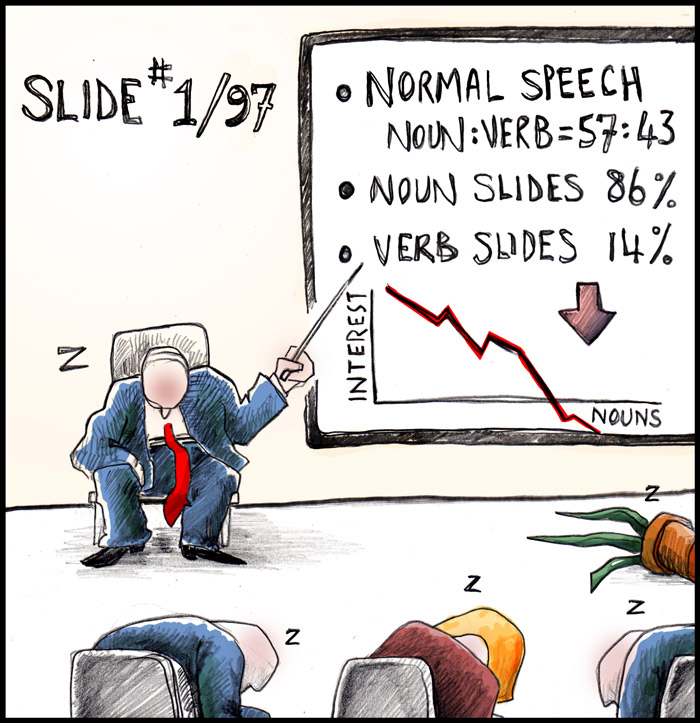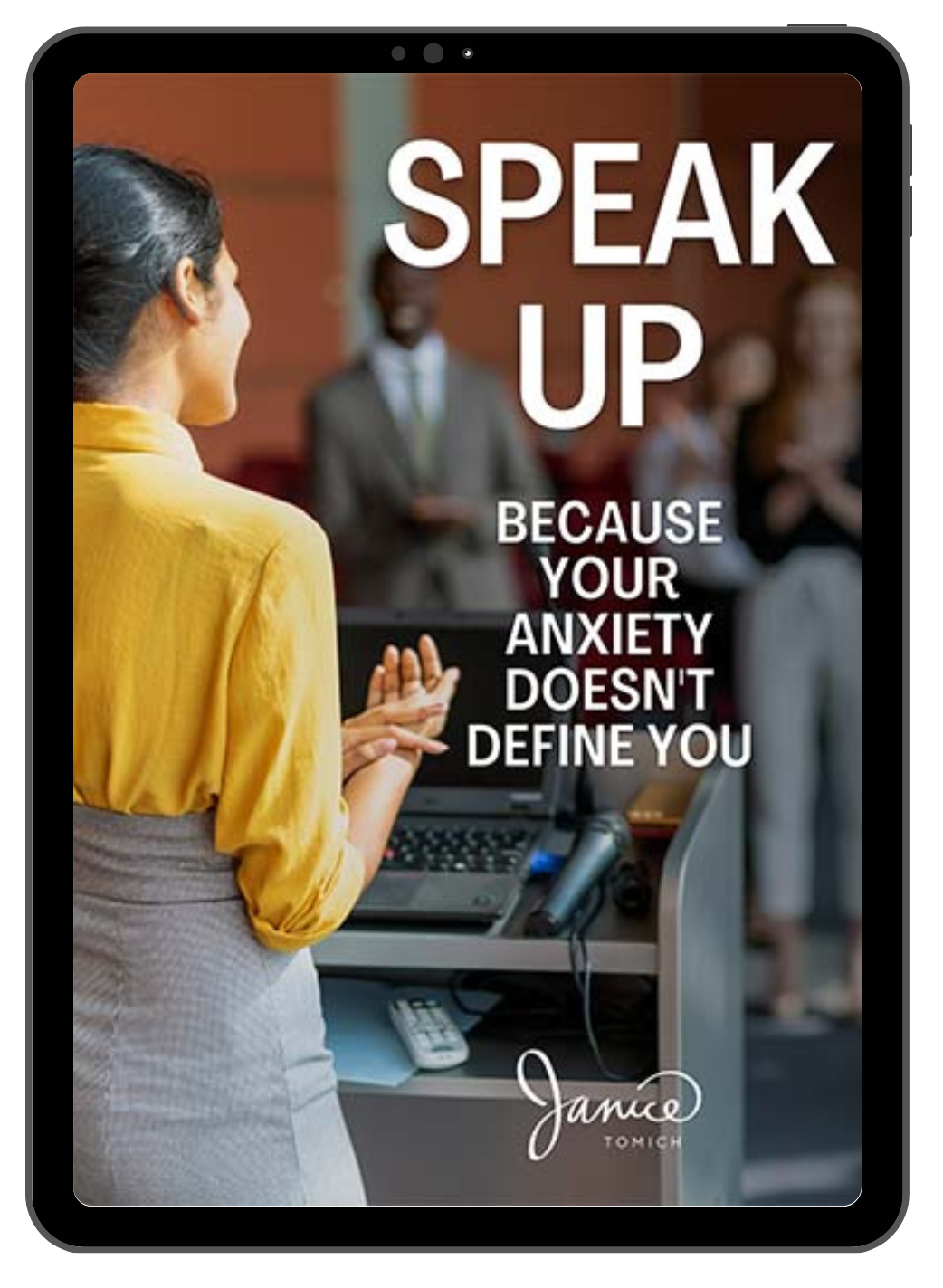By Corrie Miller
Being able to present well is essential. If people listen, if you can achieve audience buy-in and engage when you speak, you have the ability to persuade. You can change minds. You can get the sale.
According to Phillip Khan-Panni, UK champion business speaker and author,
80% of presentations fail to deliver their objective.
If there is any truth to this (and we think it’s pretty close), that means that 80% are boring tune-outs that the audience forgets as soon as they leave the room. A lot of wasted hours on both sides of the stage, and a shame really when you think of it. The audience is largely there because they hope to get something from the speaker. The speaker is there to educate, sell or otherwise persuade the audience, all the while getting an opportunity to potentially increase personal and business profile. If 80% aren’t doing that, what a wasted opportunity!
WHY PRESENTATIONS FAIL
1. DON’T KNOW YOUR AUDIENCE – Janice and I gave a presentation at a Canadian Public Relations Society session this week and I tell you, we spent a LOT of time trying to decipher what that audience would want from us. How senior would they be in their positions? Why had they chosen to attend? These questions determined how deep we would go with the material we’d chosen for a 1-hour talk, and how much would be covered accordingly. Ask around. Talking far above or below your audience’s reasons for being there will be a sure fire tune-out.
2. LACK OF AUTHENTICITY – If you can’t bring yourself to the game or are trying to be something you’re not, people can sense it. Be professional, but be yourself as much as possible. That is good enough, and in most cases better than the alternative.
3. LACK OF STORYTELLING – Storytelling has become quite the buzz word of late, but truly if I were to get up there and ONLY spew stats at you, are you going to remember them? Maybe one or two but there are two ways to evoke memory. One of those ways is by using analogy to make your point or share your statistic. The other is through images (more on that later). Find a way to convey your dry information (as is often the case) in a creative way.
Steve Jobs when introducing the iPod, didn’t talk about all the technical details about his new music player at first. He said:
“1000 songs in your pocket”. Much more visual, right? Much more engaging.
4. BAD SLIDEDECKS – Who hasn’t attended a talk, or been lectured to in a classroom where there were so many words projected on the screen that you were too busy taking notes to hear a word the speaker/lecturer was saying.

Less is more. Pictures are better than words.
The brain processes images 60,000 times faster than linear language.
That according to a recent study by 3M Corporation. Seize the opportunity to do slides well!
5. UNPREPAREDNESS – Nancy Duarte, who helped construct Al Gore’s “An Inconvenient Truth” has said that a successful presentation should take about 90 hours to put together. 30 hours to construct content. 30 hours for the slidedeck. 30 hours of practise. Practise, practise, practise. The more you speak it out loud the more you’ll know your content and the more confident you’ll be.
Don’t be afraid to look a little crazy and talk to yourself. It’s worth it.
6. ANXIETY – This is a big one and the reason people most often decline speaking engagements, or even just speaking at all in front of others. We’ll address this in a later post. A little adrenaline sharpens your mind and makes you perform better. Too much anxiety can be crippling.
Are your presentations boring tune-outs? We hope you are in that 20% of speakers that effectively deliver the message, that engage, that enlighten. If you are, you’ve significantly narrowed the competition.
What do you think are the biggest fails when you hear a talk that makes you want to exit stage left? We would love your input.

